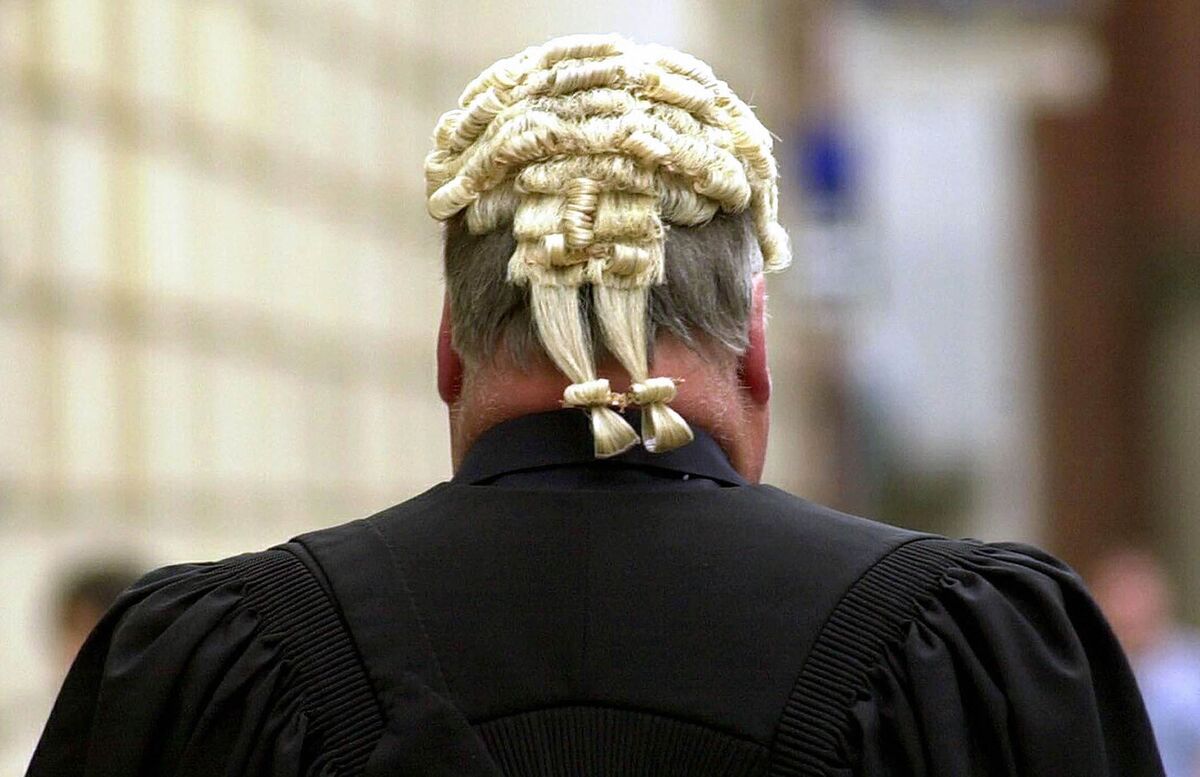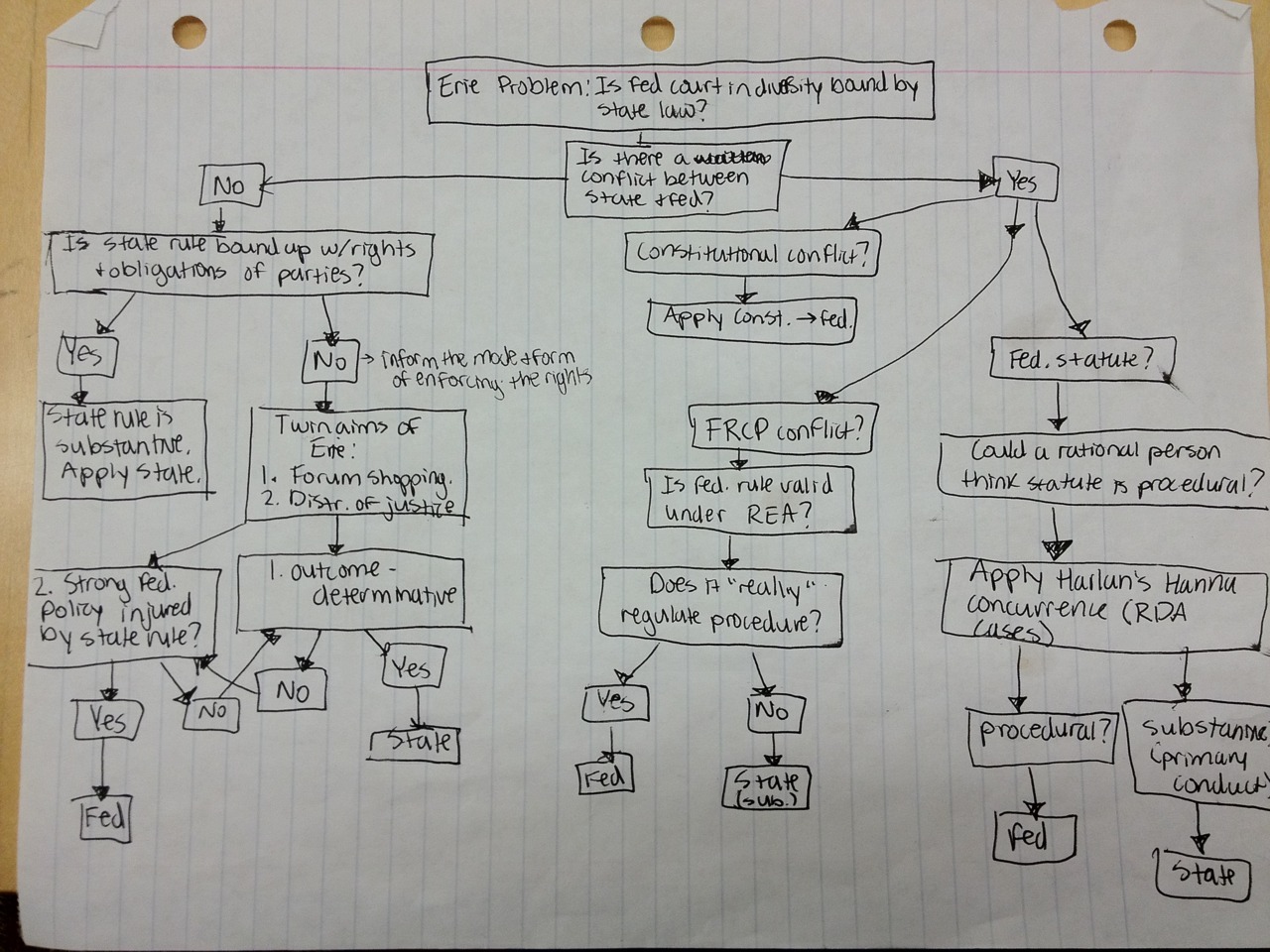How to Beat a Constructive Possession of a Firearm Charge
To beat a constructive possession of a firearm charge, gather evidence that shows lack of control and knowledge over the firearm.
Understanding Constructive Possession
Defining Constructive Possession Within The Context Of Firearm Charges
Constructive possession is a legal concept often used in firearm-related charges. It refers to situations where an individual is deemed to have control and knowledge of a firearm, even if they do not have direct physical possession of it. This can occur when the firearm is found in a location that the person has control over, such as their car, home, or workplace.
Understanding constructive possession is crucial when facing a firearm charge, as it can help in building a strong defense. Let’s delve deeper into the key aspects of constructive possession.
Clarifying The Difference Between Actual And Constructive Possession
It’s essential to distinguish between actual possession and constructive possession when it comes to firearm charges. Actual possession refers to physically having the firearm on your person, such as holding it in your hand or carrying it in a bag.
On the other hand, constructive possession involves having control and knowledge of the firearm without having physical custody of it. This means that even if you are not holding the firearm, you can still be held responsible for its possession if the prosecution can establish constructive possession.
Here are the key points to remember about the difference between actual and constructive possession:
- Actual possession: Physically holding or carrying the firearm.
- Constructive possession: Having control and knowledge of the firearm, even without direct physical custody.
Knowing The Elements Required To Establish Constructive Possession
To establish constructive possession in a firearm charge, certain elements must be present. These elements serve as the building blocks of the prosecution’s case against you. Understanding these elements can help you in building a robust defense strategy. The following are the key elements required to establish constructive possession:
- Knowledge: The prosecution must prove that you were aware of the firearm’s presence and its nature as a weapon.
- Control: It must be demonstrated that you had control over the location where the firearm was found. This control can be actual or constructive, such as having keys or access codes to a building or vehicle.
- Intent: The prosecution needs to show that you intended to exercise control over the firearm or used it for unlawful purposes.
Remember, the burden of proving each of these elements lies with the prosecution. Challenging their ability to establish constructive possession can be a critical aspect of your defense strategy.
Now that we have a clear understanding of constructive possession, we can delve further into effective ways to beat a constructive possession of a firearm charge. Stay tuned for the next section to discover valuable insights and defense strategies.
Challenging The Prosecution’S Evidence
Scrutinizing the evidence presented by the prosecution:
- Evaluating the prosecution’s evidence is crucial in building a strong defense against a constructive possession of a firearm charge. By closely examining the evidence, you can identify weaknesses or inconsistencies in the case and present alternative explanations or theories to challenge the prosecution.
Identifying weaknesses or inconsistencies in the case:
- Look for any inconsistencies or gaps in the evidence presented by the prosecution. Pay attention to details that may cast doubt on their case. Some factors to consider include:
- Chain of custody: Determine if there are any discrepancies in how the firearm was handled and stored, which could raise doubts about the accuracy of the evidence.
- Witness credibility: Assess the credibility of the witnesses who testified against you. Look for any inconsistencies in their statements or any potential biases that may affect their reliability.
- Surveillance footage: Review any surveillance footage presented as evidence. Identify any issues such as poor quality, limited visibility, or missing footage that could question the accuracy of the prosecution’s claims.
Presenting alternative explanations or theories regarding possession:
- In challenging the prosecution’s case, it is essential to offer alternative explanations or theories regarding your possession of the firearm. By presenting reasonable doubt, you can weaken the prosecution’s argument. Consider the following points:
- Shared access: If the location where the firearm was found is accessible to multiple individuals, argue that someone else could have had possession of the weapon.
- Lack of knowledge: Claim that you were unaware of the presence of the firearm. Highlight any circumstances that could explain why you had no knowledge of its existence.
- Coercion or duress: If you were forced or threatened into being in possession of the firearm, present evidence of coercion or duress as a defense.
Remember, challenging the prosecution’s evidence requires a thorough evaluation and careful examination of the details of your case. By identifying weaknesses or inconsistencies and presenting alternative explanations for your possession, you can strengthen your defense against a constructive possession of a firearm charge.
Building A Strong Defense Strategy
Consulting with an experienced criminal defense attorney:
- Seek legal advice promptly to understand the charges against you and the potential penalties involved.
- Find a defense attorney specializing in firearm possession cases to ensure expert guidance.
- Work closely with your attorney to develop a tailored defense strategy based on your specific circumstances.
- Provide your attorney with all relevant information about the incident to help them form the strongest defense possible.
- Your attorney will help you understand your rights, potential defenses, and options for minimizing the impact of the charges.
Collecting and preserving evidence to support your defense:
- Identify any evidence that contradicts the prosecution’s claims or supports your innocence.
- Gather all documents, photographs, videos, or any other evidence that could be relevant to your case.
- Ensure that all evidence is properly documented and preserved to prevent any loss or tampering.
- If there are witnesses or surveillance footage, your attorney can help you obtain and preserve that evidence.
- Your attorney will also review any potential legal challenges regarding the admissibility of evidence.
Identifying potential witnesses to testify on your behalf:
- Compile a list of individuals who may have witnessed the incident or have relevant information.
- Your attorney will interview these witnesses to determine their credibility and the strength of their testimony.
- Witnesses who can corroborate your version of events can be crucial to your defense.
- Your attorney will also assess any witnesses the prosecution may call and prepare accordingly to challenge their testimony.
- Building a strong witness list will strengthen your defense and provide alternative perspectives on the case.
By consulting with an experienced criminal defense attorney, collecting and preserving evidence, and identifying potential witnesses to testify on your behalf, you can construct a robust defense strategy for a constructive possession of a firearm charge. Remember to work closely with your attorney throughout the process and provide them with all the necessary information to ensure the best outcome for your case.
Establishing Lack Of Knowledge Or Intent
In a constructive possession of a firearm charge, it is crucial to establish that you were unaware of the firearm’s presence or ownership and that you did not have any intention to exercise control over it. These key points will help in proving your lack of knowledge or intent:
- Demonstrate unfamiliarity with the firearm: Provide evidence to show that you were not aware of the firearm’s existence or presence. This can include factors such as:
- Lack of access: Show that you did not have access to the location where the firearm was found or that you were not in proximity to it.
- Lack of handling or use: Establish that you did not handle, use, or show any interest in the firearm in question.
- Show absence of ownership or control: Prove that you did not have the intention to exercise control over the firearm. Some ways to support this argument are:
- No financial or legal ties: Provide evidence that you do not have any financial or legal connections to the firearm, such as ownership documents, receipts, or bills of sale.
- No personal belongings or fingerprints: Demonstrate that the firearm was not found among your personal belongings or that your fingerprints were not detected on it.
- Importance of establishing lack of knowledge or intent: By establishing lack of knowledge or intent, you can weaken the prosecution’s case against you, as it challenges their assertion that you knowingly possessed the firearm. This defense strategy puts the burden of proof on the prosecution to establish beyond a reasonable doubt that you had both knowledge and intent to possess the firearm.
Remember, constructing a strong defense based on lack of knowledge or intent requires thorough investigation, gathering of evidence, and support from witnesses or other credible sources who can attest to your unfamiliarity with the firearm. It is essential to consult with an experienced criminal defense attorney who can provide guidance tailored to your specific case.
Challenging The “Exclusive Control” Element
When facing a constructive possession of a firearm charge, one key element that can be challenged is the concept of “exclusive control. ” This refers to the prosecution’s assertion that you had sole possession and control over the firearm in question.
By presenting evidence of shared access or proximity to the firearm, discussing situations where exclusive control may be questioned, and arguing that others had equal or superior control over the firearm, you can effectively challenge this element.
Presenting Evidence Of Shared Access Or Proximity To The Firearm
- Co-ownership or joint possession: If you can establish that you were not the sole owner of the firearm and that others also had rightful ownership or joint possession, it can weaken the prosecution’s claim of exclusive control.
- Shared living spaces: In cases where the firearm was found in a shared residence or common area, you can argue that multiple individuals had access to the firearm, making it difficult to establish exclusive control.
- Lack of physical evidence: If there is a lack of direct physical evidence linking you to the firearm, such as fingerprints or dna, it can cast doubt on the prosecution’s claim of exclusive control.
Discussing Situations Where Exclusive Control May Be Questioned
- Temporary presence: If you were only temporarily present at the location where the firearm was found, it can be argued that your presence alone does not establish exclusive control.
- Lack of knowledge: If you were unaware of the presence of the firearm or its illegal nature, it can be difficult for the prosecution to prove exclusive control beyond a reasonable doubt.
- Unreliable witnesses: If the prosecution relies on witness testimony to establish exclusive control, you can challenge the credibility or motivations of those witnesses, weakening their claim.
Arguing That Others Had Equal Or Superior Control Over The Firearm
- Third-party admission: If someone else admits to having exclusive control or ownership of the firearm, it can support your argument that others had equal or superior control.
- Prior criminal history: If another individual with a criminal history or history of violence has access to the location where the firearm was found, it strengthens the argument that they had equal or superior control over the firearm.
- Surveillance footage or witnesses: If there is surveillance footage or witnesses that can place someone else in closer proximity or with more direct control of the firearm, it can help establish their superior control.
Remember, challenging the “exclusive control” element in a constructive possession of a firearm charge requires careful analysis of the evidence and creative legal strategies. By presenting evidence of shared access or proximity, discussing situations where exclusive control may be questioned, and arguing that others had equal or superior control, you can build a strong defense to beat this charge.
Questioning The Accessibility Of The Firearm
Examining Whether The Firearm Was Easily Accessible To You:
When facing a constructive possession of a firearm charge, one crucial aspect to consider is the accessibility of the firearm in question. By challenging the prosecution’s claim that the firearm was readily accessible to you, you can weaken their case and potentially beat the charges against you.
Here are some key points to examine when questioning the accessibility of the firearm:
- Physical barriers and restrictions: Was there anything physically preventing you from having access to the firearm? Consider factors such as locked doors, safes, or other security measures that could have hindered your ability to possess the firearm.
- Lack of proximity: Were you located in close proximity to the firearm at the time of the alleged offense? If the firearm was stored in a different area or room, it may raise doubts about your ability to easily access it.
- Third-party involvement: Were there any other individuals who had access to the firearm? If other people had the means to access and possess the firearm, it can weaken the prosecution’s claim that it was exclusively accessible to you.
- Knowledge of the firearm’s location: Did you have prior knowledge of where the firearm was stored? Lack of knowledge about the firearm’s location can undermine the prosecution’s argument that you had control and accessibility over it.
By carefully examining and presenting evidence related to the accessibility of the firearm, you can cast doubt on the prosecution’s constructive possession claim. Remember, every case is unique, so it is essential to consult with a knowledgeable attorney who can guide you through the specifics of your situation.
Independent Witnesses And Alibi
Exploring The Option Of Presenting Credible Witnesses Who Can Testify To Your Whereabouts During The Alleged Offense
If you find yourself facing a constructive possession of a firearm charge, one viable strategy to strengthen your defense is to present independent witnesses who can corroborate your alibi. These witnesses can provide crucial testimony regarding your whereabouts at the time of the alleged offense, potentially casting doubt on your involvement.
Let’s delve into the key points to consider when exploring this option:
- Highlighting the credibility and reliability of independent witnesses: Independent witnesses, who have no personal or biased interest in the case, are seen as more credible and reliable by the court. The court will be more likely to give weight to their testimony, especially if they can vouch for your location at the time of the alleged offense.
- Emphasizing the significance of corroborating testimony for your defense: Corroborating testimony from independent witnesses can help strengthen your defense by providing additional evidence to support your alibi. When multiple witnesses confirm your presence elsewhere, it raises doubts about the prosecution’s case and weakens their argument of constructive possession.
- Preparing your defense with the help of legal experts: It is crucial to consult with experienced legal professionals who can guide you in selecting and preparing your witnesses for trial. They can help you assess the credibility of potential witnesses, gather relevant evidence, and strategize the presentation of your alibi defense.
- Collecting supporting evidence: Along with eyewitness testimony, other forms of evidence can further solidify your alibi defense. This may include surveillance footage, receipts, phone records, or any tangible proof that supports your claim of being somewhere else at the time the alleged offense took place. Ensuring the authenticity and admissibility of this evidence is vital for its effectiveness in court.
- Presenting your witnesses effectively: During the trial, your legal team will need to present your witnesses in a compelling manner. This involves thoroughly reviewing their statements, preparing them for cross-examination, and presenting any relevant documentation that bolsters their credibility. Additionally, their testimonies must align with your defense strategy and create a strong impression on the judge and jury.
By exploring the option of presenting credible witnesses who can testify to your whereabouts during the alleged offense, you stand a better chance of beating a constructive possession of a firearm charge. The testimonies of independent witnesses can significantly influence the outcome of your case, helping to establish reasonable doubt and increase the chances of a favorable verdict.
With the assistance of knowledgeable legal professionals, meticulous preparation, and the presentation of compelling evidence, you can build a solid defense around your alibi.
Preparing For Trial
One of the most crucial aspects of beating a constructive possession of a firearm charge is preparing for trial. By thoroughly understanding the legal and procedural aspects of your case, cooperating with your defense attorney, and practicing your testimony, you can increase your chances of a successful outcome.
Here’s what you need to know:
Understanding The Legal And Procedural Aspects Of Your Case
- Familiarize yourself with the specific laws governing constructive possession of a firearm in your jurisdiction.
- Understand the elements that the prosecution needs to prove to secure a conviction, such as knowledge, control, and intent.
- Research the relevant case law and precedent to identify any potential defenses that may apply to your situation.
- Consult with your defense attorney to gain a comprehensive understanding of the charges against you and the potential consequences.
Cooperating With Your Defense Attorney And Providing All Necessary Information
- Choose an experienced defense attorney who specializes in firearms-related charges to handle your case.
- Be open and honest with your attorney, providing them with all relevant details about the incident and your involvement.
- Share any evidence, witnesses, or other information that may support your defense.
- Follow your attorney’s advice and guidance throughout the trial preparation process.
Practicing Your Testimony And Preparing For Cross-Examination
- Work closely with your defense attorney to craft a clear and concise narrative for your testimony.
- Be prepared to explain your actions, intentions, and lack of knowledge regarding the firearm in question.
- Practice answering potential cross-examination questions to ensure you remain composed and consistent on the stand.
- Learn how to effectively communicate with the jury, using simple language and relatable examples.
By investing time and effort into understanding the legal aspects of your case, cooperating with your defense attorney, and preparing for trial, you can significantly improve your chances of beating a constructive possession of a firearm charge. Remember to stay proactive, honest, and focused throughout the entire process.
Expert Witnesses And Forensic Evidence
Considering The Use Of Expert Witnesses To Challenge The Prosecution’S Evidence
In cases involving constructive possession of a firearm, expert witnesses can play a crucial role in challenging the prosecution’s evidence. These witnesses possess specialized knowledge and experience that can help to cast doubt on the validity of the claims made by the prosecution.
Here are some key points to consider when using expert witnesses:
- Expert witnesses can provide testimony regarding the circumstances surrounding the alleged offense. They can analyze the evidence presented by the prosecution and offer their professional opinion on its validity and reliability.
- They can challenge the methods used by law enforcement in determining constructive possession. Expert witnesses may question whether the evidence gathered was obtained lawfully, or if there were any procedural errors in the investigation.
- Another role of expert witnesses is to educate the jury about technical aspects of firearms and possession laws. Their expertise can help the jury better understand complex legal concepts and evaluate whether the prosecution’s arguments hold up under scrutiny.
- Expert witnesses can also present alternative theories or explanations for the presence of a firearm. They may suggest that the firearm was planted or belonged to someone else, thereby challenging the assumption of the defendant’s control and knowledge of the weapon.
- It is essential to retain qualified and credible expert witnesses who have a solid reputation in their respective fields. Their testimony should carry weight and be persuasive to the jury, giving the defense a better chance of disproving the prosecution’s claims.
Exploring Forensic Evidence That Can Contradict Or Disprove The Constructive Possession Claim
Forensic evidence can be instrumental in discrediting the prosecution’s claim of constructive possession of a firearm. Here are some key points to consider when exploring forensic evidence:
- Forensic experts can examine the physical evidence related to the case, such as fingerprints, dna, or ballistics analysis. By scrutinizing these pieces of evidence, they can determine if there are any inconsistencies or contradictions that weaken the prosecution’s case.
- They can analyze the crime scene and determine whether there is any evidence to support or refute the claim of constructive possession. For example, they may look for evidence pointing to the presence of other individuals who may have had access to the firearm.
- Forensic evidence can also help establish alternative explanations for the presence of a firearm. For instance, the analysis of fingerprints on the weapon may reveal that it was handled by someone other than the defendant.
- It is crucial to collect and preserve forensic evidence in a timely and appropriate manner to ensure its admissibility in court. Strict adherence to proper collection and handling protocols is necessary to maintain the integrity of the evidence and avoid any challenge to its validity.
Meeting requirements and deadlines to present expert witnesses or forensic evidence
When it comes to presenting expert witnesses or forensic evidence in a constructive possession case, it is essential to meet the necessary requirements and deadlines. Failure to do so may result in the exclusion of critical evidence or witnesses, weakening the defense’s position.
Here’s what you need to know:
- Familiarize yourself with the rules and procedures specific to the jurisdiction where the case is being tried. Each jurisdiction may have different requirements regarding the disclosure of expert witnesses or the submission of forensic evidence.
- Consult with your defense team to determine the relevant deadlines for presenting expert witnesses or forensic evidence. Failure to adhere to these deadlines may result in a waiver of the right to present such evidence.
- Properly vet and prepare expert witnesses to ensure they are qualified, credible, and capable of delivering persuasive testimony. This includes gathering their written reports, cvs, and any other supporting documentation required by the court.
- Consult with forensic experts early in the case to give them ample time to examine the evidence thoroughly. They will need sufficient time to conduct their analysis and prepare their findings and reports.
Remember, the presentation of expert witnesses and forensic evidence is a critical part of challenging a constructive possession charge. By leveraging their expertise and utilizing forensic evidence effectively, you can bolster your defense and increase the chances of a favorable outcome.
Negotiating A Plea Deal
Assessing The Potential Benefits And Drawbacks Of Negotiating A Plea Deal
Negotiating a plea deal can be a strategic decision when facing a constructive possession of a firearm charge. It is important to carefully assess the potential benefits and drawbacks before making a final decision. Here are the key points to consider:
- Benefits of negotiating a plea deal:
- Reduced charges: By negotiating a plea deal, it may be possible to have the constructive possession charge reduced to a lesser offense, such as a misdemeanor, which carries less severe penalties.
- Avoiding trial: Opting for a plea deal means avoiding the uncertainty of a trial. It can save time, emotional stress, and legal expenses associated with a lengthy court process.
- Leniency from the prosecution: In some cases, prosecutors may be open to offering a favorable plea deal if the defendant agrees to provide cooperation or evidence against other defendants in related cases.
- Drawbacks of negotiating a plea deal:
- Admission of guilt: Accepting a plea deal requires admitting guilt to the charges, which can have long-term consequences on one’s criminal record and reputation.
- Penalties: While a plea deal may result in reduced charges, it still carries penalties that can include fines, probation, community service, or even a short period of incarceration.
- Limited legal options: Once a plea deal is accepted, it is generally not possible to later appeal the conviction or seek a different outcome. This can limit future legal avenues if new evidence or circumstances arise.
Discussing Strategies To Secure A Favorable Plea Agreement If Appropriate
If negotiating a plea deal seems like the best course of action, considering the specific strategies to secure a favorable plea agreement is crucial. Here are some effective strategies to consider:
- Hire an experienced defense attorney: Working with a skilled and experienced defense attorney specializing in firearm charges can significantly improve the chances of securing a favorable plea agreement. They will navigate the legal complexities, negotiate with the prosecution, and protect your rights throughout the process.
- Craft a strong defense: By identifying weaknesses in the prosecution’s case, such as flawed evidence or questionable search and seizure tactics, your defense attorney can leverage these factors to negotiate a more favorable plea agreement.
- Mitigating factors: Emphasizing mitigating factors, such as lack of prior criminal record, involvement in community service, or completion of rehabilitation programs, can help present a more sympathetic picture to the prosecution, increasing the chances of a favorable plea agreement.
- Negotiating terms: Your defense attorney can skillfully negotiate the terms of the plea agreement, ensuring that the penalties and conditions are fair and reasonable. They can strive to obtain a more lenient sentence, reduced probation, or alternative sentencing options.
Remaining Informed And Involved In The Decision-Making Process
When facing a constructive possession of a firearm charge, it is crucial to remain informed and actively involved in the decision-making process. Here’s what you need to know:
- Seek legal counsel: Consult with an experienced defense attorney who specializes in firearm charges to understand your rights, legal options, and potential outcomes. They will guide you throughout the process and ensure your interests are protected.
- Evaluate the strength of the prosecution’s case: Work closely with your defense attorney to assess the prosecution’s evidence against you. Understanding the strength or weakness of their case will inform the decision on whether to negotiate a plea deal or proceed to trial.
- Discuss potential plea agreement terms: Engage in open and transparent communication with your defense attorney regarding the possible terms of a plea agreement. This includes understanding the potential penalties, probation conditions, and any associated consequences.
- Consider personal circumstances: Factor in personal circumstances, such as impact on employment, family, and future prospects when evaluating the appeal of a plea agreement. Your defense attorney can provide guidance on how each decision may affect your life moving forward.
Remember, negotiating a plea deal is a complex process that requires careful consideration. By assessing the potential benefits and drawbacks, discussing strategies with your defense attorney, and staying informed and involved in the decision-making process, you can make an informed choice that best suits your situation.
Frequently Asked Questions On How To Beat A Constructive Possession Of A Firearm Charge
What Is Constructive Possession Of A Firearm?
Constructive possession of a firearm refers to the legal concept where a person may be charged for possessing a firearm even if they do not physically have it on their person. If the person has control, knowledge, and the ability to access the firearm, they can still be held liable.
What Are The Elements Of Constructive Possession?
For constructive possession of a firearm, three elements must be proven: knowledge, ability to control, and intent. The person must be aware of the firearm’s presence, have the ability to access or control it, and intend to exercise control over it.
Lack of any of these elements may weaken the case against the defendant.
How Can I Beat A Constructive Possession Charge?
To beat a constructive possession charge, it is crucial to present a strong defense. This can include establishing lack of knowledge or intent, challenging the prosecution’s evidence, or proving that you did not have control over the firearm. Contacting an experienced criminal defense attorney is highly recommended to strategize the most effective defense strategy.
Can Constructive Possession Apply To Firearms In Vehicles?
Yes, constructive possession can apply to firearms found in vehicles. If you are the driver or a passenger and the firearm is in your immediate vicinity, with knowledge and the ability to control it, you can be charged with constructive possession.
Having a valid or expired firearms license may affect the outcome.
Are There Any Defenses Against A Constructive Possession Charge?
Yes, several defenses can be raised against a constructive possession charge. These include proving the lack of knowledge, demonstrating the absence of intent to possess the firearm, challenging how the evidence was obtained, or asserting a legitimate reason for the firearm’s presence.
Consulting with an attorney to determine the best defense strategy is crucial.
What Are The Potential Penalties For Constructive Possession?
The potential penalties for constructive possession of a firearm charge can vary depending on the jurisdiction and the circumstances. Convictions may result in fines, probation, community service, mandatory firearms safety courses, or imprisonment. The severity of the penalties can be influenced by factors such as prior criminal history and the specific details of the case.
Conclusion
To successfully navigate a constructive possession of a firearm charge, it is crucial to understand the legal elements at play. By proving that you did not have both knowledge and control over the firearm, you can challenge the prosecution’s case.
Take immediate action by hiring a knowledgeable defense attorney who can examine the specific circumstances surrounding your charge. They can strategically challenge the evidence presented against you, explore potential defenses, and ensure that your rights are protected throughout the legal process.
Remember to remain cooperative with law enforcement while asserting your rights, as this can have a significant impact on your case. With a strong defense strategy and the right legal representation, you have a fighting chance to beat a constructive possession of a firearm charge and protect your future.
Don’t wait – consult with a legal professional today.




